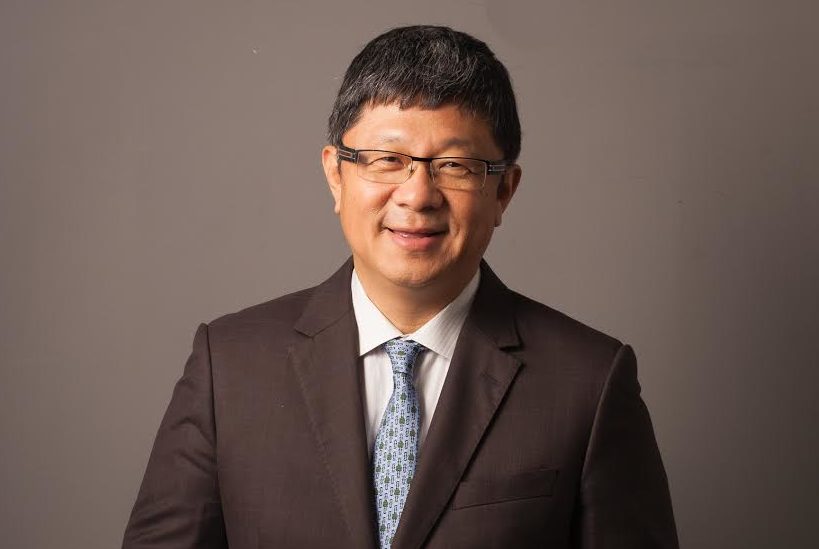Mediaweek Asia: Weekly Roundup

Peter Olszewski round out the week’s media news in the Asian market
Mediacorp appoints four new directors
Mediacorp has appointed four new directors to its board in Singapore, effective immediately.
The new directors are Niam Chiang Meng, deputy chairman of the Maritime and Port Authority of Singapore and board member of Inland Revenue Authority of Singapore, Robin Hu, CEO of South China Morning Post Group, Rajesh Sreenivasan, partner at Rajah & Tann Singapore and Roy Quek, executive chairman of Thomson Medical Group, Singapore’s largest private women and children’s healthcare group.
Euronews sets up in Singapore
Euronews is setting up a sales office in Singapore to develop advertising and increase the distribution of Euronews. Guillaume Canard-Duchêne has been appointed Asia-Pacific sales director and will oversee seven sales reps in Hong Kong, Indonesia, Japan, Malaysia, the Philippines, South Korea and Thailand. Maxime Vandenbroucque has been appointed Asia-Pacific distribution manager. The priority targets are China and Hong Kong, Japan, South Korea, the Southeast Asian countries and Australia.
Men’s Health Singapore’s ultra-running challenge
The Singapore edition of Men’s Health magazine, published by SPH, has organised the nation’s first online ultra-running challenge.
The Men’s Health Virtual Run 2016 will take place between 1 November and 31 December, and will enable runners to band together and strive towards a common goal – clocking 100,000 km in two months. Participants will also be rewarded with prizes as they hit certain distance milestones and take part in various social media challenges.
The Men’s Health Virtual Run is organised by the magazine in collaboration with sports brand ASICS and global running app RunKeeper.
Thailand urged to become digital content hub
Manabu Kahara, president of NTT Communications (Thailand), the local operating unit of Japan’s NTT Communication Corporation, said Thailand must become a digital content hub by 2018, otherwise it could risk lagging behind other regional tech hubs. He added that the Kingdom has high potential to become a digital content hub due to its geographical position.
But one problem it faces is that there are only eight submarine cable lines in Thailand compared with over 15 in Singapore, the main reason why the likes of Google or Facebook routed their internet traffic through Singapore and Malaysia.
Plus the cost of international internet connection fees in Thailand is 10 times higher than in the US and five times higher than in Singapore.
RugbyPass does deal for Chinese broadcast
China’s Alisports has signed a deal with RugbyPass to become the local digital partner for RugbyPass in China to 31 December 2017. RugbyPass intends to launch two rugby channels: one will be a free Chinese language channel in China to run on a Youku rugby channel. The second channel will be a premium subscription service to launch in the first quarter of next year. RugbyPass was launched in Asia in February 2016 by Singapore-based Coliseum Sports Media.
Xinhua’s makes solid stock exchange debut
Shares climbed sharply in Xinhuanet Company, the website of China’s Xinhua News Agency, when it made its trading debut on the Shanghai Stock Exchange last Friday. Xinhua News Agency holds more than 80% of the shares and 51.9 million shares became available on the market. On trading debut the shares gained almost 44% to 39.87 yuan per share (approx. A$7.76). Xinhuanet is the second Chinese state media outlet to go public. People.cn, the website of the People’s Daily, listed in early 2012.
ABS-CBN dominates Philippines’ Emmys
Media company ABS-CBN dominated this year’s Philippine Movie Press Club awards, including winning Best TV Station at the 2016 PMPC Star Awards for TV, making it the company’s eighth consecutive win since 2009.
It won a swag of other awards including Best Primetime Drama Series, Best Drama Actor, Best Child Performer, Best New Male TV Personality, Best Daytime Drama Series, and Best Drama Supporting Actor,
ABS-CBN’s news and current affairs arm also won awards including Best News Program, Best Documentary Special, Best Magazine Show, Best Educational TV Program, and Best Public Affairs Program.
Alibaba to form new digital media group
Alibaba will form a new digital media group along with plans for a 10 billion yuan (A$1.9b) fund for new projects. This will mark a consolidation of Alibaba’s media businesses, including Youku Tudou, UCWeb, and Alibaba Pictures Group. Yu Yongfu, former CEO of UCWeb, will become the chairman and CEO of the newly formed Alibaba Digital Media and Entertainment Group, reporting to Alibaba CEO Daniel Zhang.
ABS-CBN says its DTT service will be profitable
Philippines broadcaster ABS-CBN expects its Digital Terrestrial Television service to be profitable by next year. The company sold more than 1.6 million DTT TVplus boxes as of September, and hopes to sell two million by the end of the year. Next year the company will start selling minutes to advertisers on four exclusive channels of its DTT service ABS-CBN TVplus boxes such as DZMM Teleradyo, Cinemo, Yey and Knowledge Channel. ABS-CBN pioneered the digital television service in the Philippines when it launched the TVplus digital box in February 2015. The box gives cable-like viewing without monthly fees.
Bigo Live streaming app a big hit
Cambodian youth are the latest to sign up to Southeast Asia’s live streaming app Bigo Live.
The app was launched in Singapore in March and now has over 35 million users, with almost a million signing up in Cambodia where it is the third-most downloaded app both on iOS and Android smartphones. Both versions of the app are consistently in the top 20 apps used in Singapore, Indonesia, Vietnam, Thailand and Laos, but it’s a little less popular in Malaysia.
Bigo (which stands for Before I Get Old) is also controversial because it often features video of young women in risqué poses to attract men and some governments, especially Vietnam, have spoken out against it.
Bigo Live’s parent company Bigo Technology is 27.78% owned by China-based social media site YY, and YY’s CEO David Xueling is also the founder of Bigo Technology.
Korea’s Naver posts profit leap
South Korea’s leading internet portal operator Naver said its third quarter net profit leapt 69.5% YOY to 198 billion won (A$227.8m). The company attributed the sharp uptick to a steady increase in overseas sales. Advertising income spiked 27.7% to 749.5 billion won with overseas advertising revenue accounting for 21% of the total.
Online live streamers boom in South Korea
Online live streamers, also known as multichannel networkers (MCN), are booming in South Korea creating a new business model in the media industry. A February survey by Nielsen Korea Click revealed that Koreans spent 21 billion hours consuming media content via their mobile devices last year, a 30% increase from 2014. Last year entertainment giant CJ E&M launched DIA TV, which established partnerships with top-rated streamers and provided management services to help them create content. Naver has also been running V Live, which lets K-pop stars set up their own streaming channel for fans.
Mediaweek Asia In Brief
• Amazon has launched its Prime subscription service in China, but minus online music and video operations probably because of China’s regulatory system which caused video rival Netflix to admit recently that it didn’t think it would be allowed to enter China any time soon.
• Singapore Press Holdings has appointed Young Lim, formerly editor of Singapore Tatler Homes, as editor of Home & Decor. He will report to Raymond Goh, group editor of SPH Magazines.
• The humble music cassette is making a comeback in Southeast Asia where low production costs and a retro-chic have made the cassette an underground-music fixture with outfits such as Singaporean surf-punk band Force Vomit.
• Thai TV and radio stations can resume normal programming on 14 November, with the rider that there are still restrictions on programs that could cause division in society. Widespread restrictions were put in place following the death of King Bhumibol Adulyadej on 13 October.
• mm2 Asia subsidiary mm2 Entertainment has acquired Malaysia and Singapore rights to international singing contest The Voice. The company acquired the rights to produce and broadcast The Voice from Talpa Global.
• Malaysia’s Astro has launched Boo, an Asian horror channel for its pay-TV and prepaid freesat viewers.Henry Tan, COO, Astro said, “Horror and the supernatural are one of the most enduring audience favourites. Thus, Boo is a well-timed addition to our lineup and we believe that Boo and similar Asian vernacular content will be able to travel beyond Malaysia to resonate with audiences across Southeast Asia.”
• BBC Worldwide Asia has launched BBC First in Hong Kong as a SVOD service on the territory’s largest pay-TV provider Now TV.
• Hong Kong-based PCCW Media’s OTT platform Viu is now also streaming Thai dramas in Singapore, adding to its library of Korean and Japanese shows.



